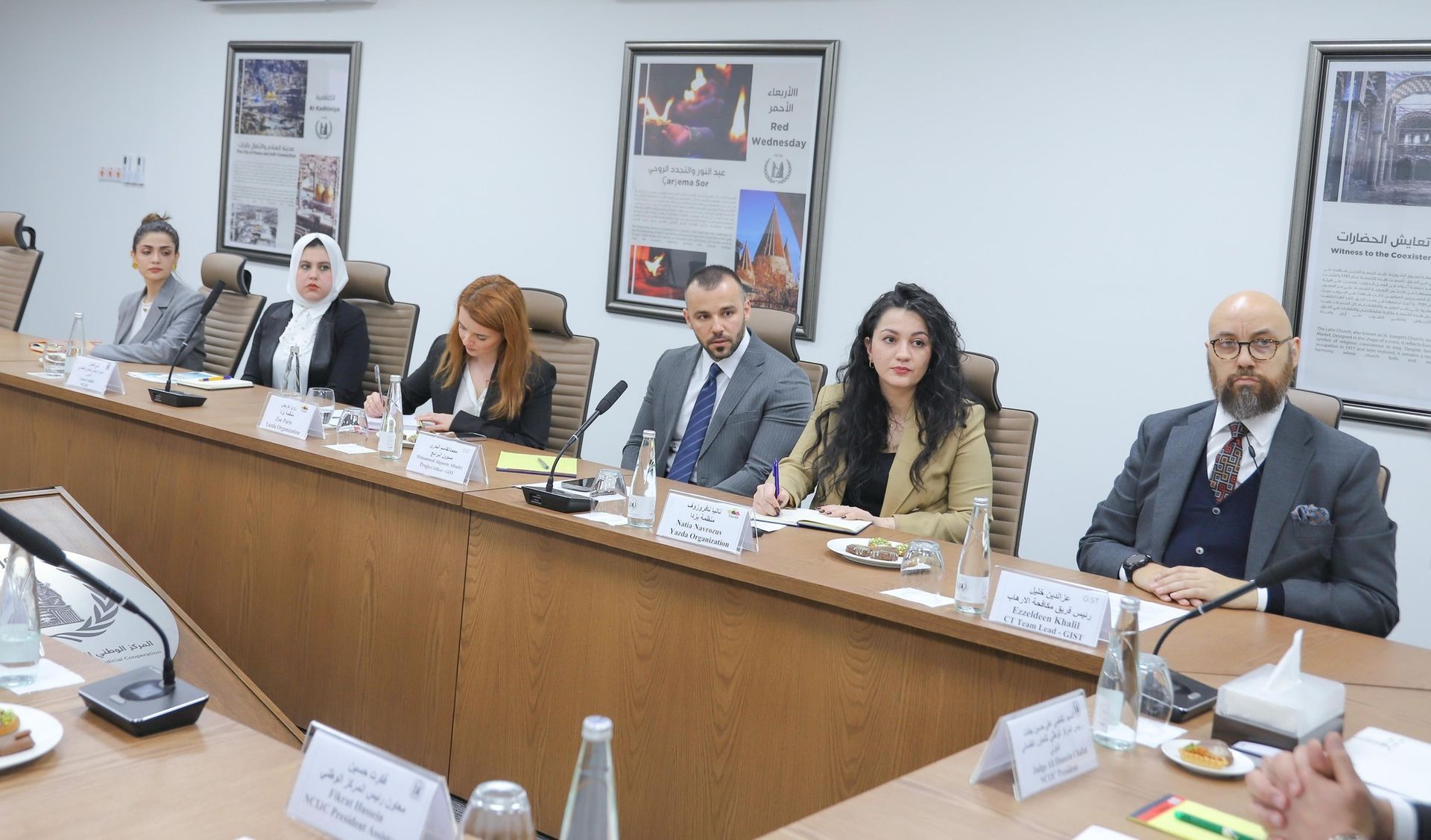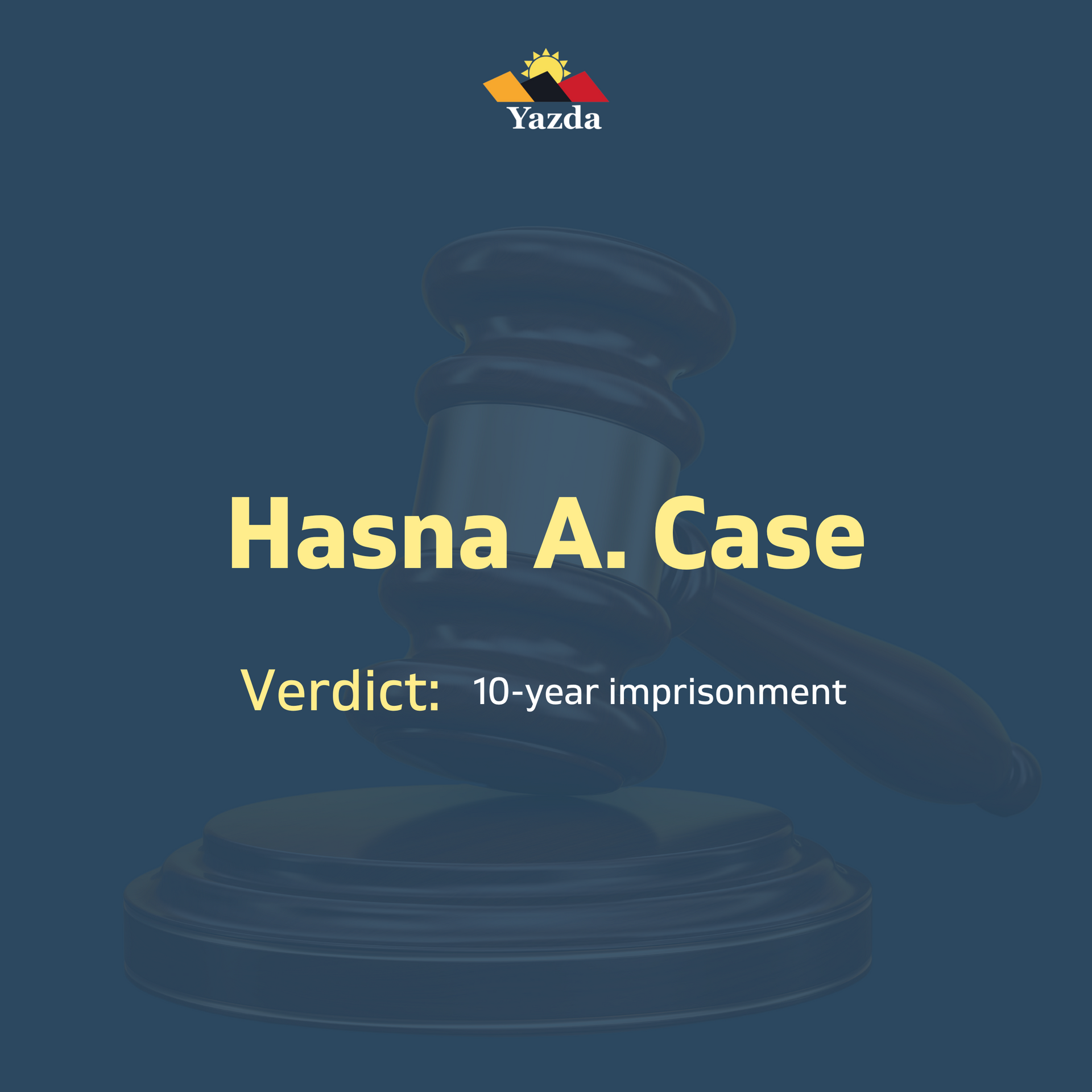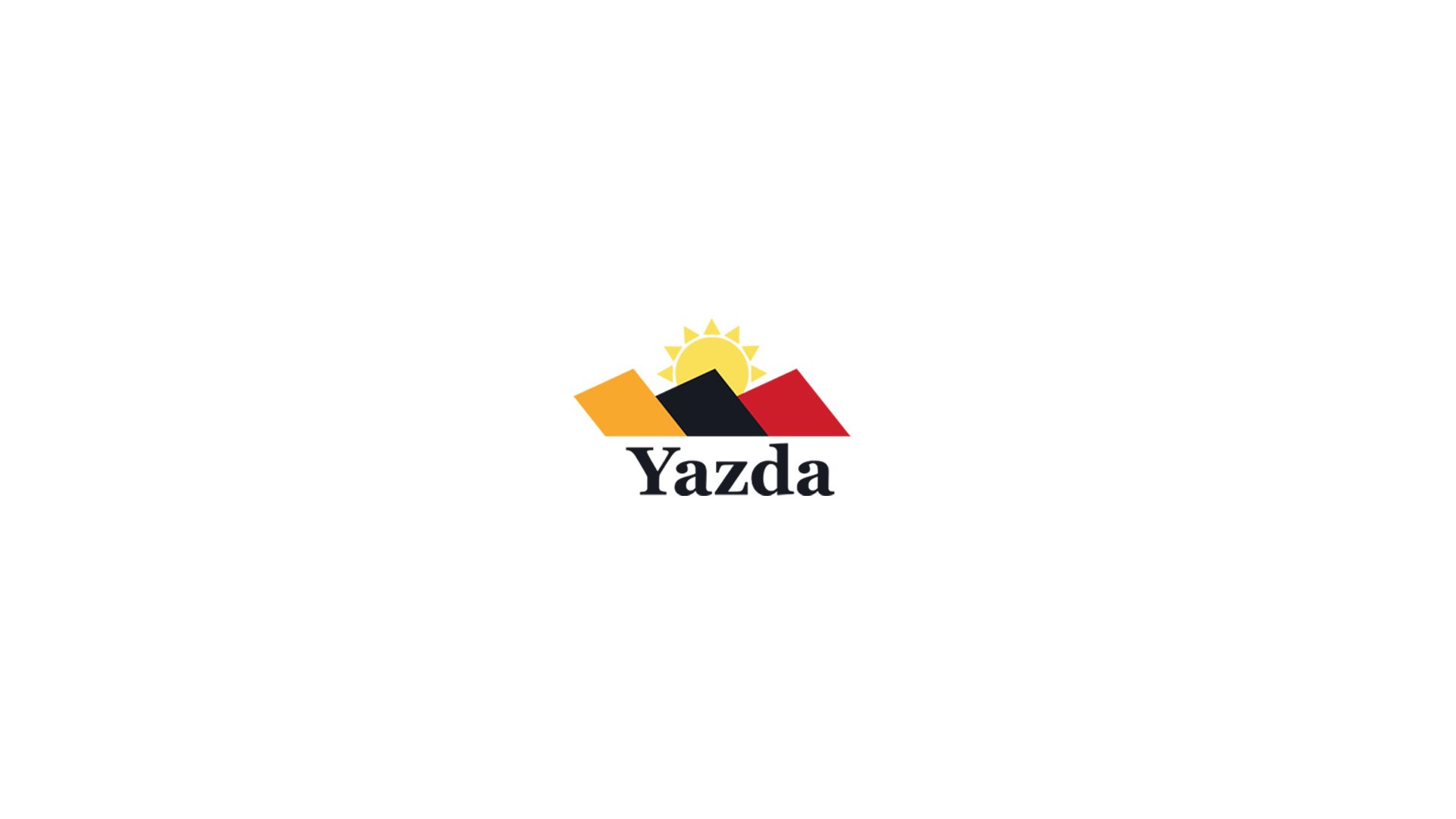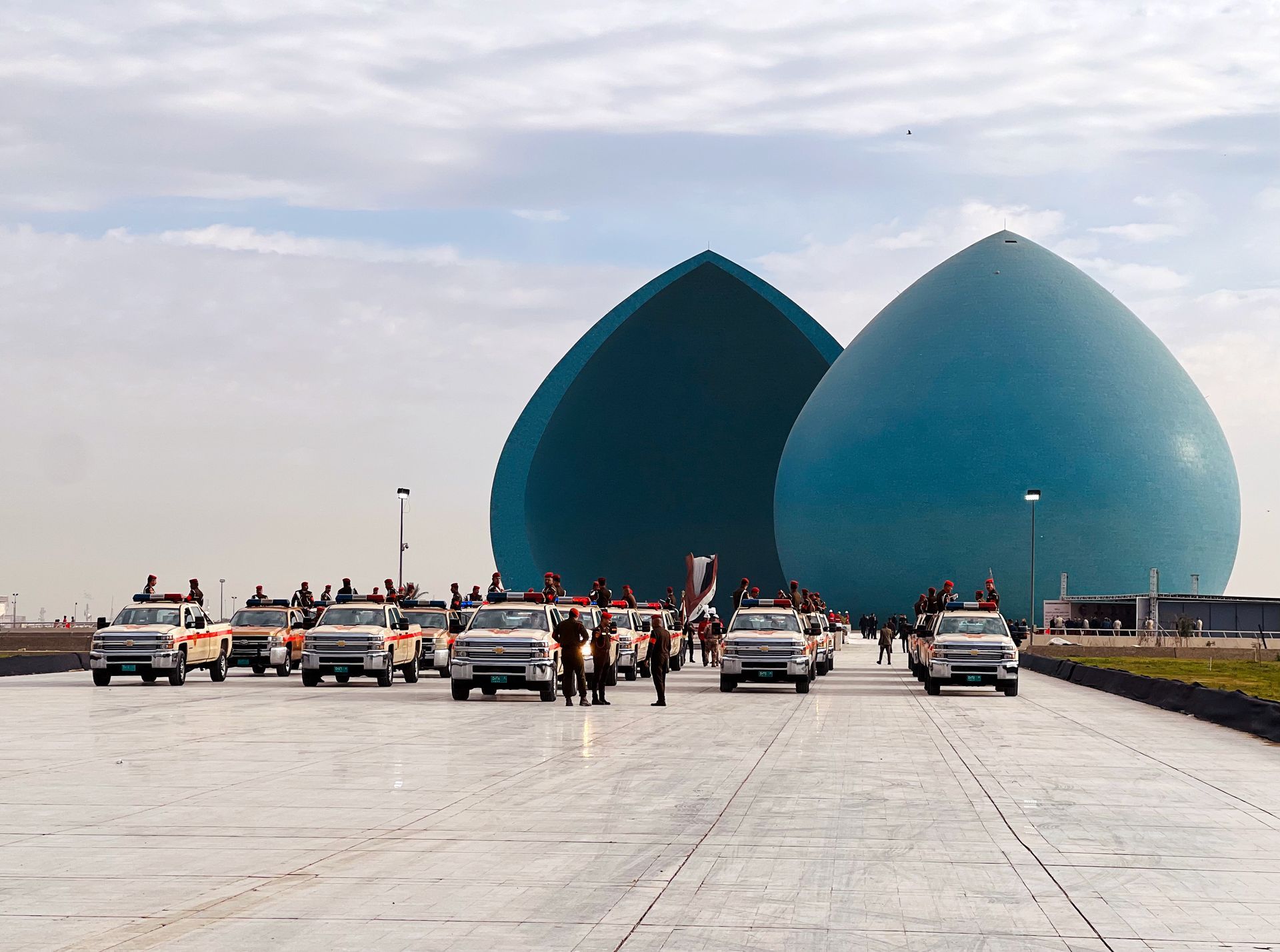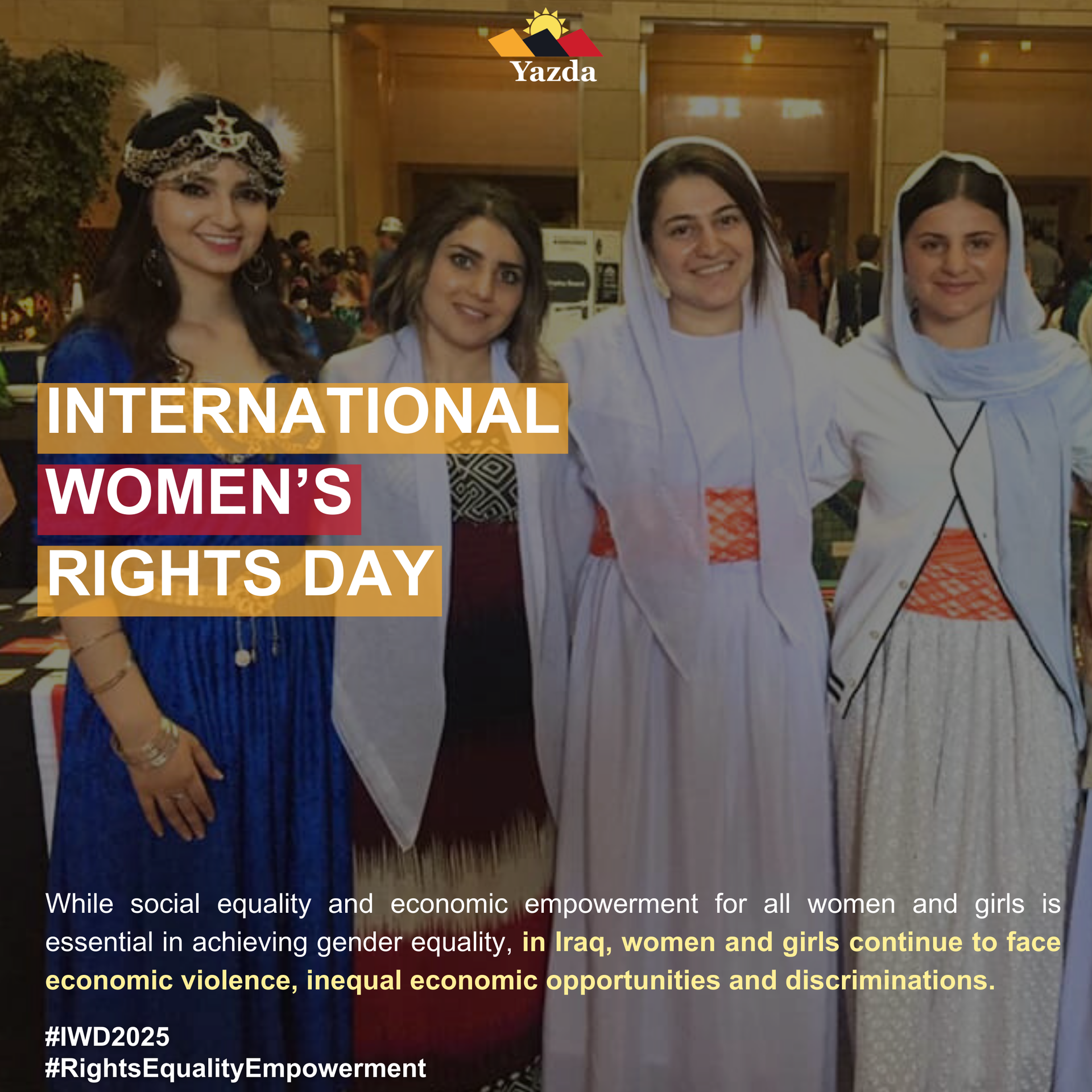Date:
Issued on:
Last updated:
August 1, 2019
August 1, 2019
August 1, 2019
Contact:
Phone:
Email:
Titled “Five years of Genocide: Yazidis demand justice, security, and reconstruction,” today’s event was a deep and honest reflection of challenges facing the Yazidi people, five years since the Sinjar invasion began on August 3, 2014. The conference brought together 200 government and diplomatic corps dignitaries, leaders and activists of civil society, Yazidi survivors, and friends of the Yazidi Cause at the Babylon Rotana Hotel in Baghdad.
The day began with a series of plenary speeches, followed by two afternoon panels on empowering the voices of Yazidi women and bringing justice to survivors. The overarching theme of the day was the need to have an honesty check and acknowledge the troubling realities of Yazidis in Iraq today, and the responsibility of all to act with urgency.
Yazidi survivor Hala Safil was the first plenary speaker, setting the tone for the rest of the day declaring, “More than 80% of the population is suffering from the bitterness of displacement, and our once-secure areas have unfortunately become arenas for conflicts. Little has changed since their liberation.” She added, “This is a situation of instability and risk that may be disastrous if not addressed with wisdom and decisiveness.”
Plenaries continued with an insistence to preserve and promote the mosaic nature and spirit of Iraqi society. Ammar al-Hakim, leader of the al Hikmah Movement poignantly stated, “The Yazidis are the unifying component of Iraqi society.”He added, “The targeting of Yazidis by Daesh targeted all Iraqis not just Yazidis alone. Daesh targeted civil peace, the unifying force of our society, and the pluralism of Iraq.”
Supportive words from the Iraqi government were presented by Dr. Mahdi Alallaq, representing the Office of the Prime Minister of Iraq, as well as Saib Khider, a member of parliament representing the Yazidi quota. Khider insisted, “We cannot say this is just a memory. We are still living genocide. The wounds are still open and it hasn’t been treated yet.”
Special Representative of the United Nations Secretary general in Iraq (UNAMI), Jeanine Hennis-Plasschaert, spoke to the conditions of much of the displaced Yazidi population and questioned the current state of Sinjar, asking, “Why are stable government and security structures still absent? Why is a unified administrative structure still not in place?”
Karim Khan, Special Advisor and Head of the United Nations Investigative Team said, “The treasure of the Yazidi community clearly is your women. Because the women stood tall when Daesh stood so low.”
Strong words of support calling for the urgency of addressing the challenges of the Yazidi people were ex- pressed by members of the diplomatic community, with plenaries presented bythe Ambassador of the United States in Iraq, H.E. Matthew Tueller; the Ambassador of France inIraq, H.E. Bruno Aubert; Matt Alexander, the Acting Deputy Head of Mission of the Embassy of Australia in Iraq; John Tucknott, Deputy Ambassador of the Embassy of the United Kingdom in Iraq; and Beate Hoppe, First Secretary for Political and Cultural Affairs at the Embassy of Germany in Iraq.
Imam of Abu Hanifa Mosque, Abdul Wahab Al-Samarai addressed the audience, saying, “We need citizenship that sponsors and nurtures diversity, despite the different identities... We need to put our country first and not our ethnicities and religions.”
Nadine Maenza, Vice Chair of the United States Commission on International Religious Freedom closed the plenaries, saying “We promise we will not forget your loss and suffering.”
Tough questions and answers were presented during the afternoon panels. The panels stressed that without strong commitments to security and economic development in Sinjar, Yazidi women and their families are not being given the chance to break-through and truly survive the hardships they have been enduring since the start of genocide.They also spoke to the many forms of justice necessary to ensure long-term community prosperity, insisting that dignity be at at the core of any justice journey.
The Empowering Women Voices panel focused on answering the question “What does it take?” with four speakers moderated by Dr. Ibtisam Aziz Ali, General Director of Women Empowermentin Iraqi Govern- ment. The speakers were medical trauma specialist, Dr. Nagham Nawzad; Headof Tuly NGO for Turkmen Rights, Himam Ramzi; Civil Society Initiative Program Officer of ICMP, Ruaa Abdulrazzaq; and General Director of the Non-Governmental Organizations, Mohammed Tahir Al-Tamimi.
The Justice for Genocide Survivors panel debated the question “How?” moderated by Natia Navrouzov, Yazda Documentation Project Manager . The four speakers were Saad Salloum, Director Masarat; Sareta Ash- raph, Senior Member of UNITAD; Zena Sulaiman, a survivor of theYazidi Genocide; Dhiyaa Kareem, General-Director of Martyr’s Foundation.
“Today was about bringing visionaries and friends together who share a common vision and firm belief that we are not doing enough, and more needs to be done to ensure a dignified rehabilitation and re-building of Sinjar, the Yazidi people, and all communities affected by
so-called Islamic State,” explained Murad Ismael, Executive Director of Yazda.
This commemoration event was made possible thanks to the very kind generosity of the Norwegian People’s Aid.
Note to editors:
Background information on the Yazidi genocide and Sinjar The Yazidis are an ethnic and religious minority with a culture that dates back over 6,000 years, based mainly in the northern parts of Iraq and Syria, with migrant communities in Europe and North America. In the summer of 2014, the so-called Islamic State (ISIS) launched a systematic attack against civilians in Syria and northern Iraq. On the 3rd of August, the extermination campaign reached Sinjar, home at the time to the majority of the world’s Yazidis, an ethno-religious minority with centuries of heritage throughout the Middle East. The United Nations Independent International Commission of Inquiry on the Syrian Arab Republic in its report on the crimes committed against the Yazidis noted: “The date of 3 August 2014 would become a dividing line, demarcating when one life ended, and – for those who survived – when another, infinitely more cruel, existence began.”
In the weeks that followed, approximately 12,000 Yazidis were murdered or abducted by ISIS. An estimated 6,800 Yazidis, mostly women and children, were kidnapped and subjected to prolonged sexual, psychological and physical abuse. ISIS militants also forced Yazidis to convert to Islam and separated younger boys from their families, sending them to re-education camps and then into the frontlines as child soldiers. The genocide also targeted the rich and ancient cultural heritage of the Yazidi people, Some of the most im- portant religious and cultural sites were systematically destroyed by the group. ISIS also laid booby traps in Yazidi homes, fully preventing Yazidis from returning back to their homeland, even long after the socalled “Caliphate” was declared largely defeated in Iraq.
The United Nations, the European Parliament, the Council of Europe, the House of Representatives of the United States of America, and the parliaments of Armenia, Australia, Canada, France, Scotland and the United Kingdom have all recognized that the crimes committed by so-called Islamic State against the Yazidis amount to genocide. However, until today, five years since genocide began, justice has not been served, and almost 3,000 women and children remain missing, with many suspected to still be in captivity.
To-date, Yazidis have not been able to return back to their homes, and no meaningful action has been taken to resolve the political and security issues in Sinjar and other areas where minorities live. Over 400,000 people remain displaced and unable to return to their homes, living in very difficult conditions in IDP and refugee camps in the Middle East and Europe.
Background information on the destruction of Yazidi cultural heritage International law allows for the prosecution of the destruction of tangible cultural heritage as a war crime, on the basis ofproof that an attack (or destruction under customary law) against a protected site was conducted without military justification. There is significant precedence on this matter, such as, for example, the several convictions obtained before the International Criminal Tribunal for the Former Yugoslavia (ICTY), as well as the conviction (Al-Mahdi) and indictment (Ag Mahmoud) before the International Criminal Court. Attacks against tangible heritage may also be prosecuted as a crime of persecution, a crime against humanity, or as part of a widespread or systematic attack on a civilian population. It is critical to note that the destruction of tangible cultural heritage can also result in the elimination of intangible culture and heritage.
About Yazda
Yazda is a non-profit organization, with a mission to support the Yazidi community internationally and in their homeland in the aftermath of the start of genocide in August 2014. International human rights lawyer Amal Clooney, Yazda's legal counsel, represents a number of Yazidi women who are survivors of so-called Islamic State, including Nadia Murad, Nobel Peace Prize Laureate 2018 and United Nations Goodwill Ambassador for the Dignity of Survivors of Human Trafficking.
Download press release
here.
